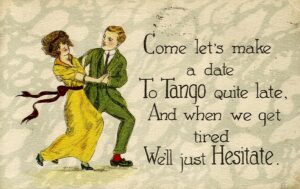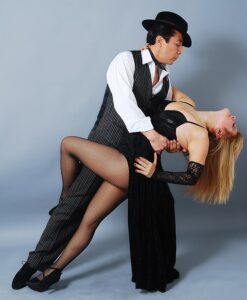So many strangers are telling me right now that I’m not Australian and that none of my relatives are Australian and… my mind keeps returning to what this means for the Arts in Australia. Certainly it’s much more difficult for anyone Jewish to earn money in the Arts here: there are some places I won’t even fill in the forms until I see that things have changed. I don’t have much physical capacity and when something is obviously a waste of my time, I do something else with that precious time. However… it struck me that I see the world through my upbringing. I talk about books from non-Jewish Australia a great deal, but my own view of the world is shaped by my family and their friends and the stories I was told as a child.
We all see the world from our own eyes. If someone were to ask me how I see the arts in Jewish Australia, I’d only give a partial answer, because there is so much stuff I forget. The first thing I think of, in fact, is what has impacted me and when and why. I thought, this week, then, I’d give you a little list. The list is little but it contains many words, because I annotated it. Welcome to the Arts in Australia seen Jewishly, through my life.
Let me begin with family and friends.
My mother’s family arrived in Australia before World War II or died in that war (save one person, who is not part of today’s story because he was not an artist, musician or writer). Mum’s immediate family was all here by 1918. It was a big family in Europe and is not the smallest family in Australia. Of all my mother’s cousins there are two who were well-known as writers. Very well-known, in fact.
Morris Lurie was Naomi’s brother. Naomi was so much a forever part of my life that even now she’s gone, I still think of one of Australia’s better known writers of plays through the fact that his sister was Naomi. Every time Naomi was in Melbourne, she’d shout “Sonya,” across the street to my mother, because they were very close. Mum hates loud voices and Naomi thought that Mum hating the noise and the laughter was hilarious.
I know about Morrie, and I collected his plays when I was a teenager. One of the lesser known facts of Gillian’s life is that, for twenty years, she collected plays. I still have my collection, but most of it needs a new home. I never met Morrie. He wasn’t much into meeting our side of the family. Even if we had met, I suspect we wouldn’t have had a lot in common. Naomi, on the other hand, was someone I would spend any amount of time with. She was my bridge to the Yiddish-speaking side of the family, and is the main reason why I don’t use that in my fiction: it’s her culture, not mine. My cultural self is from my father’s family. Loving Naomi, though, sent me to understand klezmer and Sholom Aleichem and so much else. I need to re-read Morrie’s plays. Maybe now I’m no longer a teenager I’ll like them more. Maybe not. I’ll see.
Arnold Zable is, as my mother explains, a family connection. His refugee cousin married Mum’s refugee cousin. Arnold is Victoria’s great storyteller. He also wrote an amazing book about the family left behind: Jewels and Ashes.
My father’s side of the family is so very musical. One of my father’s best friends was an extraordinarily well-known performer… but that’s another story. This is one of the days when stories lead to stories and those stories lead to more stories. Between family and friends, I grew up with music the way I grew up with rocks. Science and music and Doctor Who kept our family together for a very long while.
The most famous musician/composer/music critic in the family (she was never just one thing, nor was she a simple person) influenced me a great deal in my youth. Linda was my father’s first cousin, and spent time with me when I was very uncertain of where I fitted and who I was. She accompanied my sister on the piano when that sister was doing more advanced music. She told me some of the stories of her life, but never the really private ones.
Linda was Linda Phillips She described her own music as “light classics.” We played them on the piano at home… but never well. Her music was a lot more than ‘light classics’ as was Linda herself. Her daughter, Bettine, also wore her talents lightly. I knew that she had acted on stage with Barry Humphreys as an undergraduate, but I had no idea that she was a famous radio actor back when radio was the centre of so many people’s entertainment. They were both quiet about their achievements.
Here I need to explain that, not only were they modest and exceptionally fun to be with, but they were nothing close to my age. Linda was my father’s first cousin, to be sure, but she was born in the nineteenth century: she was sixty years older than me. Linda lived until the twenty-first century, and we lost Bettine to COVID. They were part of an enormous change in the Arts in Australia, beginning with Linda’s early career as a pianist over a century ago. I grew up with this, taking it for granted that there was a life in the Arts and a world and so much enjoyment… but seldom enough money to live on.
There is a third family musician, my own first cousin, Jon Snyder. His life is another story. He was in a very popular band (Captain Matchbox) and became a music teacher. His professional life began in the sixties, so the age differences are still there, but not as great. So many of the friends of my schooldays also became musicians, and three of them play in the same band, in Melbourne. That’s another story, however. I am no musician. I had some talent, but words were always more fun and, to be honest, I used to be tone deaf. I love music and the artists who create and perform it, though, because until I left home, it was part of my everyday. In fact, even when I left home, music crept up on me. I kept running into friends of Linda’s. They would send messages to Linda through me. Stories breed stories…
Also, this stopped being a list almost as early as it began being a list. I’ve only talked about a third of the writing side of the family. But this post is long enough. The rest can wait.
PS I have not at all forgotten the questions I promised to answer. There are only two questions, but the answers require a lot of thought. My everyday is a bit over the top at the moment. When things calm down, I will answer those questions. I promise.

 At the beginning of Trump 1.0, I began a series entitled “In Troubled Times.” With the onset of the war in Ukraine (aka The War of Russian Aggression), I shifted to “In Times of War.” Today, Substackian Robert Reich offers reasons for cautious optimism. Let’s feed that hope!
At the beginning of Trump 1.0, I began a series entitled “In Troubled Times.” With the onset of the war in Ukraine (aka The War of Russian Aggression), I shifted to “In Times of War.” Today, Substackian Robert Reich offers reasons for cautious optimism. Let’s feed that hope! As I was making the bed this morning I found myself humming “
As I was making the bed this morning I found myself humming “ It’s not a difficult dance; the pattern is simple: 1-2 1-2-3. The steps can be taken in a straight line (a la Gomez and Morticia Addams) or, as we did, in a box. Step forward on my left, then right; step back on my left, step a little further out on the right, then bring the left in to join the right. The second three steps are a little faster than the first two. Once I could do that without falling over, Dad introduced other steps (my favorite was a sort of zig-zagging step where he held on to my elbows and turned me right and left, back and forth, for a count of five to the tempo of the music). And there were dips–Dad did not drop me backward as in the illustration here. Mine was just a slight bending backward, supported by his hand (nor did I wrap my leg around him. We didn’t have that kind of relationship). I assume my mother was teaching my brother roughly the same things: I wasn’t watching him, I was watching my feet.
It’s not a difficult dance; the pattern is simple: 1-2 1-2-3. The steps can be taken in a straight line (a la Gomez and Morticia Addams) or, as we did, in a box. Step forward on my left, then right; step back on my left, step a little further out on the right, then bring the left in to join the right. The second three steps are a little faster than the first two. Once I could do that without falling over, Dad introduced other steps (my favorite was a sort of zig-zagging step where he held on to my elbows and turned me right and left, back and forth, for a count of five to the tempo of the music). And there were dips–Dad did not drop me backward as in the illustration here. Mine was just a slight bending backward, supported by his hand (nor did I wrap my leg around him. We didn’t have that kind of relationship). I assume my mother was teaching my brother roughly the same things: I wasn’t watching him, I was watching my feet.